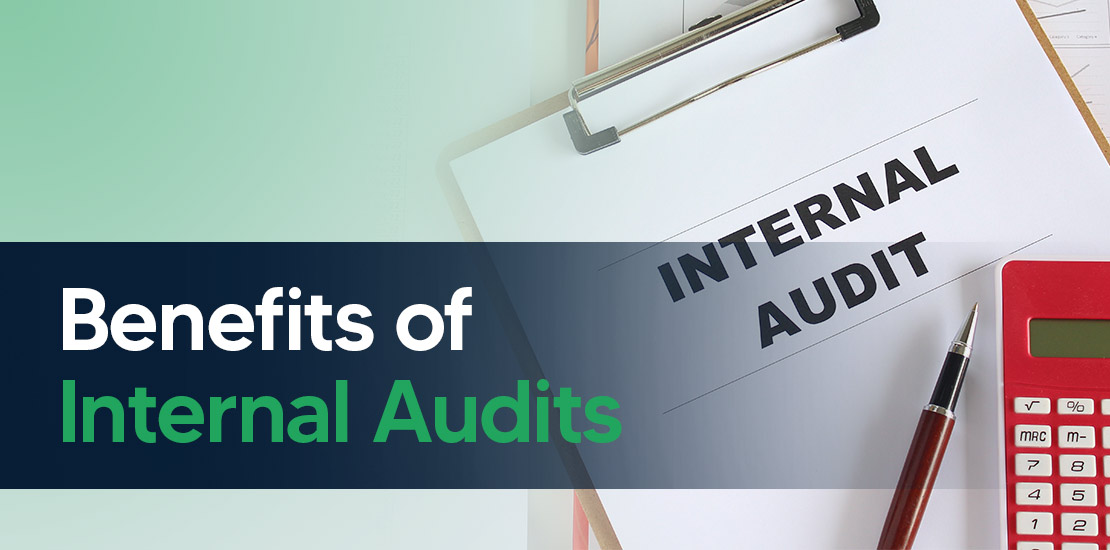Following challenging accounting standards is critical when you increase your business abroad and manage significant transactions. The International Financial Reporting Standards (IFRS) are widely accepted rules for financial reporting included by many countries. Companies typically adopt these standards to guarantee compliance and maintain correct financial records.
However, because these standards can change and cause confusion, it’s essential to have contact with IFRS Advisory Services. In this blog by Shuraa Tax, we explore the importance of these services and how Shuraa Tax can assist in guaranteeing compliance with IFRS regulations.
What does IFRS Advisory mean?
IFRS, or International Financial Reporting Standards, offers a fundamental framework for creating financial statements. These universal rules are used worldwide to guarantee financial statements are uniform, reliable, and can be compared easily. The International Accounting Standards Board (IASB) issues the IFRS framework. IFRS is a global language that fosters business transactions with credibility and transparency. Therefore, companies must adhere to IFRS guidelines to uphold effective and dependable financial reporting.
Benefits of IFRS
The following are the benefits of IFRS:
- Improves transparency and comparability of financial information, assisting investors in making informed decisions.
- Reinforces accountability by bridging the gap between capital providers and recipients.
- Promotes economic efficiency by allowing global risk and opportunity recognition, enhancing capital allocation.
- Increases reliability of financial statements through precise preparation and ethical practices.
- Facilitates VAT compliance, particularly in jurisdictions like the UAE, where IFRS is mandatory for listed and LLC companies, ensuring credible VAT reporting.
Key International Financial Reporting Standards
Below are a few significant International Financial Reporting Standards (IFRS):
| IFRSs & IASs | Objectives & Scopes |
| IFRS 2 | An organisation must recognise share-based payment transactions in its financial statements, such as granted shares, share options, or share appreciation rights. |
| IFRS 3 | Business Combinations cover accounting for when one company gains control of another through acquisition or merger. |
| IFRS 5 | This standard outline accounting for non-current assets designated for sale or distribution to owners. |
| IFRS 6 | Exploration and Evaluation of Mineral Resources standard permits entities new to the standard to use their existing accounting policies for exploration assets. It also changes how impairment testing is conducted for these assets. |
| IFRS 9 | Acknowledgement and Measurement categorise financial assets based on the business model in which they are held, and it is applicable across all industries. |
| IFRS 10 | Consolidated Financial Statements sets rules for preparing and presenting consolidated financial statements, mandating entities to include those they control. |
| IFRS 14 | Regulatory Deferral Accounts lets first-time adopters of IFRS continue accounting for ‘regulatory deferral account balances’ as per their previous GAAP, with slight adjustments. |
| IFRS 15 | Revenue from Contracts with Customers applies to all customer contracts. |
| IAS 2 | Inventories dictate how to account for various inventory types. |
| IAS 16 | Property, Plant, and Equipment govern the accounting for most types of such assets. |
Importance of IFRS
Financial reporting standards are essential for global and international reporting as they provide consistent data, confirm economic efficiency, and aid investors in identifying opportunities and risks worldwide to improve capital allocation. IFRS provides general guidelines for preparing financial statements.
It’s essential for the following reasons:
1. Starting consistent measures and recognition methods prevents manipulation, errors, and discrepancies in financial reporting.
2. With multinational corporations operating worldwide, a universal accounting standard improves the credibility of financial reports, facilitating international trade and economic growth.
3. IFRS ensures consistency in treating business activities, provides users of financial statements with clear explanations for item recognition, and enables accurate decision-making.
Latest updates in the IFRS
Stay updated on the latest developments in International Financial Reporting Standards.
1. IFRS 15 – Revenue from contracts with customers
IFRS 15 centres on transferring control and identifying performance obligations. We evaluate how these obligations align with the requirements of IFRS 15, considering various revenue sources such as Trading, Construction, and Services. It offers a unified model for recognising revenue from all goods and services across diverse industries.
Our IFRS advisory services will conduct an Impact assessment on IFRS 15, covering the following key areas:
- Identifying customer contracts and performance obligations.
- Evaluating whether obligations are fulfilled at a specific point or over time, based on IFRS 15 criteria.
- Verifying contract cost recognition and transaction price allocation.
- Determining the timing of revenue recognition.
- Analyzing contract modifications for IFRS 15 compliance.
- Assessing the need for significant estimate revisions.
- Identifying areas requiring critical judgment and interpretation.
- Recommending extensive disclosure requirements as per the new standard.
IFRS 15 Substitutes
| IAS 11 | Construction contracts |
| IAS 18 | Revenue |
| IFRIC 13 | Customer loyalty programs |
| IFRIC 15 | Agreement for the construction of the real estate |
| IFRIC 18 | Transaction of assets from customers |
2. IFRS 16- Leases
IFRS 16, issued by the International Accounting Standards Board, provides guidelines for lease accounting. Effective in January 2019, for most companies reporting under IFRS, it replaced the previous leasing standard, IAS 17, issued in January 2016.
The impact of IFRS 16 standard:
- Enhances transparency regarding companies’ lease obligations, assets, and liabilities.
- Improves comparability between companies that lease and those that borrow to purchase assets.
Our IFRS advisory services at Shuraa Tax for IFRS 16 – Leases will include:
- Identifying lease contracts and assessing IFRS 16 applicability.
- Reviewing any subleases.
- Conducting lease accounting reviews as necessary.
- Providing guidance on determining discount rates, lease terms, etc.
- Assisting in preparing lease amortisation tables.
- Offering guidance on transition methods.
- Recommending changes to IT systems and processes to comply with IFRS 16 requirements.
- Addressing disclosure requirements according to the standard.
3. IFRS 9 – Finanqcial Instruments
IFRS 9, issued by the International Accounting Standards Board (IASB), focuses on financial instrument accounting and replaces the IAS 39 Recognition and Measurement standard.
The impact assessment for IFRS 9 will broadly include:
- Categorising and measuring financial assets and liabilities.
- Evaluating impairment of financial assets and liabilities using the three-stage damage model.
- Applying IFRS 9 through practical expedients.
- Addressing disclosure requirements as per the standard.
Under IFRS 9—financial instruments, starting an impairment allowance is mandatory. It must be regularly assessed, and any changes in the allowance must be reflected in the profit and loss account.
4. IFRS 17- Insurance Contracts
IFRS 17 mandates that insurance liabilities be assessed at their current fulfilment value, offering a standardized measurement and presentation method for all insurance contracts. It replaces IFRS 4 Insurance Contracts and related interpretations and applies to periods starting from January 1, 2023. Early adoption is allowed if IFRS 15 Revenue from Contracts with Customers and IFRS 9 Financial instruments are implemented.
Other IFRS Advisory Services in the UAE include:
- Developing Accounting Policies/IFRS Manual.
- Conducting IFRS Training.
- Providing Implementation Support for IFRS standards such as IFRS 16, IFRS 9, and IFRS 15, among others.
Shuraa Tax IFRS Services
Well-known for its exceptional IFRS consulting services across the UAE, Shuraa Tax assists clients comprehensively in financial reporting, preparing IFRS financial statement, analysing upcoming amendments, and more. Our IFRS advisory and consulting services include:
- Assistance with IFRS adoption and implementation
- Support for implementing complex standards
- Conducting impairment testing and modelling
- Ensuring compliance with revenue recognition processes and controls
- Developing comprehensive reporting manuals
- Formulating sustainability plans
- Helping update IFRS accounting policies by standards changes or adoptions
- Providing training and facilitating knowledge transfer processes.
Why Choose Shuraa Tax Accounting?
Implementing the new IFRS standards has posed significant challenges for companies in the UAE, particularly because many have delayed the process. This results in a concentrated workload towards the end of the year rather than being spread out. It also requires substantial efforts from the IT side. These new standards have led to discrepancies in income statement and balance sheet arrangements.
At Shuraa Tax, our experienced professionals can provide superior IFRS advisory services for your business, ensuring alignment with global standards and compliance with tax regulations to relieve your business of tax burdens.
In addition to offering IFRS advisory services in the UAE, Shuraa Tax efficiently manages CFO Services, Auditing Services, Accounting & Bookkeeping Services, Accounting Software Services, Due Diligence Services, and Tax Filing & VAT Consultancy services promptly and conveniently for our valued clients. Our customer-centric approach is highly regarded, and we guarantee exceptional service for your business.
Require IFRS advisory services? Don’t hesitate to reach out to us. Shuraa Tax is here to assist you! Contact us today to learn more about our services. Reach us at +971508912062 or email us at info@shuraatax.com.













